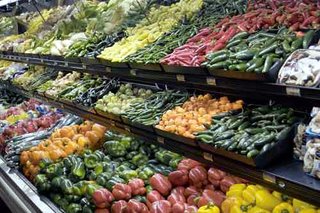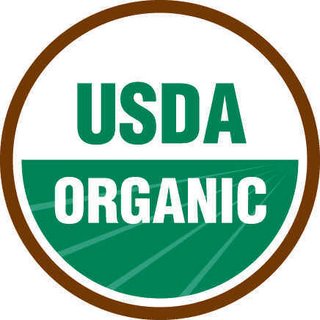
Recently I’ve noticed a buzz about the increased availability of organic vegetables in the produce sections of major marketplaces including big, bad Wal-Mart. I should start by saying that I think the growth of Wal-Mart is an incredibly destructive force in this country that destroys local businesses, increases the dependency of American citizens on foreign imports, drives American jobs overseas, and continues to foster the idea that everything should be cheap and easy regardless of the consequence. I don’t shop there and the introduction of organics won’t change that. Before this piece becomes a full-fledged rant against the monster Sam Walton released on our nation I’ll stop shouting with a story I find tragic on several levels. Thanks to Matt Savinar for the heads up.
Hilton also has personal reasons for his passionate support of Wal-Mart. Several years ago, his late fiancée, Gloria Machado, was battling cancer. She wanted to work but, emaciated and having lost her hair, she had trouble finding a job. "Wal-Mart hired her and let her work around her chemotherapy schedule," Hilton recalls. "Talk about enhancing someone's self-esteem. It made her feel like somebody. They didn't bat an eye if she couldn't make it because her chemo session ran overtime." Machado lost her battle against cancer, but her six months working at the Wal-Mart in
Full story here.
Anyways, back to the organics issue. Wal-Mart and others in the mainstream steam of the shopping experience here in the
Farmer A lives 6 miles outside of town. He provides produce you buy at your local farmers market. He’s not certified organic but doesn’t use commercial pesticides or fertilizers. His seeds aren’t organic but he’s committed to using cover crops and other sustainable practices to build soil for the long term health of his farm. He invites you to visit any time to check out his operation. You do and are impressed.
“The
Call me cynical but how much do you trust a government label? There have been attempts made by corporations to lobby for reductions in the standards of such labels.
“Organic standards are under assault once again. A sneak attack in Congress in October 2005 potentially opened the door for hundreds of synthetic substances to be used in processed organic foods, without proper scientific review by the organic community. Recent attempts, partly successful, have been made to pack the National Organic Standards Board, the organic community's traditional watchdog over organic standards, with food industry and agribusiness bureaucrats."
As big business tries to cash in on Americans turning towards organic I can certainly see more attempts to do so. We’ll just have to trust our government to protect us (smirk).
How about a definition of local?
Lastly what practices are sustainable?  Some people believe agriculture itself is unsustainable. I believe we’ve made this bed and now we have to find out how to responsibly lie in it. John Jevons recommends 60% of crop lands be dedicated to producing soil amendments but the use of dual purpose seed and grain crops is acceptable to his practices. Do your food producers turn more than half of their crops back into the soil? How about water use; do they divert waterways to irrigate otherwise unfarmable land? Is the idea of shipping food from
Some people believe agriculture itself is unsustainable. I believe we’ve made this bed and now we have to find out how to responsibly lie in it. John Jevons recommends 60% of crop lands be dedicated to producing soil amendments but the use of dual purpose seed and grain crops is acceptable to his practices. Do your food producers turn more than half of their crops back into the soil? How about water use; do they divert waterways to irrigate otherwise unfarmable land? Is the idea of shipping food from
I wrote this piece to help clarify my thoughts on the currently competing ideas about growing food organically, locally and sustainably. I haven’t come to a conclusion about which is more important. I guess it depends on the criteria you use to critique. Maybe it just best to buy food encrusted with as few chemicals as possible, from as near by as feasible from those producing the food in the manner most sustainable in your eyes. I bet it’s going to take some research.



1 comment:
I sure Sam walton is rolling in
his grave watching what these corporate melonheads have turn
Wal-mart into!
Post a Comment